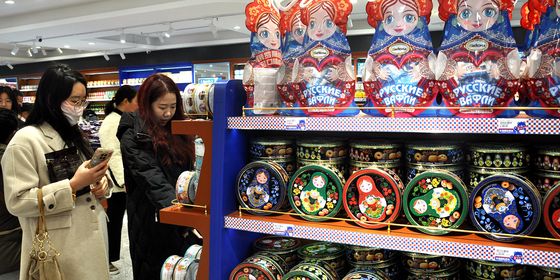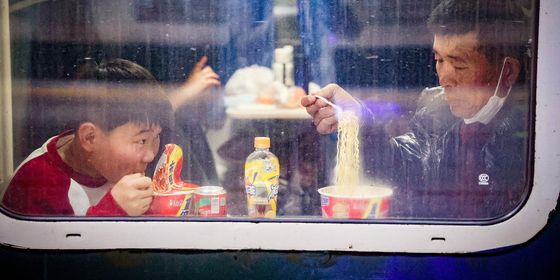The counterfeit busts and unsanitary reveals that alarmed China this year
As 2019 approaches, so does the usual array of lists and round-ups for the dwindling year. In the spirit of variety, The World of Chinese has endeavored to chronicle the countdowns that others don’t. Try elsewhere (or, indeed, everywhere) for your everyday 2018 listicles—here you will find the stories, characters and pratfalls that the rest of the English-language media has largely overlooked.
It has been 10 years since one of China’s most egregious food safety scandals, involving melamine found in milk powder distributed by the Sanlu Group, led to the creation of the Food Safety Law. However, Chinese industries are still marred by many wrongdoers and corners-cutters who turn a blind eye to concerns. TWOC looks back at 10 of the most alarming consumer safety scandals of 2018.
1. Vaccination vexation
In August, sub-standard vaccinations for diphtheria, whooping cough and tetanus had been administered to over 250,000 children, some as young as three months old. Premier Li Keqiang condemned the incident as crossing the “moral bottom line” and ordered an investigation into the matter. Vaccine manufacturer Changsheng Bio-tech was hit with a record fine amount totaling 7.2 billion RMB, and had its medical license revoked.
2. Counterfeit condoms
The scandal-filled year both started and ended with Chinese police busting counterfeit condom rings. In January, nearly 2 million counterfeit brand-name contraceptives were confiscated in Shanxi province. Though the ringleaders were arrested and the workshops shut down, an even more ghastly scandal hit the headlines in November, when 50,000 boxes of reused (and repackaged) condoms were seized in Henan and Hubei provinces. Seventeen people have been arrested in this latest scandal, and face four years in prison apiece.
3. Wine worries
The circulation of fake alcohol is an age-old problem, with many complaining about particularly painful hangovers after drinking in Chinese bars. This April saw 50,000 bottles of counterfeit Penfold wine seized in Zhengzhou; 3,000 of the fake bottles had previously sold for a total 5 million RMB. Penfold promised to work closely with police to cripple the copycats.
4. Preschoolers’ plight
A principal in Dali was fired in November, when it was revealed that she had watered-down milk that the school served to the kids, and skimped on buying high-quality food or meat for their meals, as she personally owned a 30-percent stake in the kindergarten. After the principal was fired, authorities announced that all the children would receive medical examinations.
In September, another kindergarten scandal saw over 300 children being sent to hospital after eating expired food. Parents found that the kids were being served rice full of insects, and chicken legs that had gone off in 2017. Coming on top of last year’s scandals, concerning child abuse in the country’s private kindergartens, netizens were understandably upset, with one asking: “Does anyone dare even to have a child?”
5. Honey hazard
Traditional Chinese Medicine firm Tong Ren Tang, a beloved household name, is under fire for allegedly recycling expired honey, a product that is supposed to have an “eternal shelf life.” Tong Ren Tang is a Chinese institution, claiming to have supplied “eight generations of emperors” since being founded in 1669. The firm’s honey supplier, Yancheng Golden Bee Food Technology, claimed that the expired honey was only to be used as bee feed, but investigative reporters from the Jiangsu Broadcasting Corporation stated that the honey was being poured into vessels for further production.
6. Formaldehyde fears
In August, a woman in Hangzhou sued one of China’s largest real-estate agencies, Ziroom, after her husband died from leukemia, allegedly caused by abnormally high levels of formaldehyde in their rental apartment. This triggered a mass panic among Ziroom customers, who scrambled to test their apartments, and the agency pulled all its newly renovated units offline for air-quality inspections. In December, Ziroom found itself involved in a lawsuit from 26 tenants, all of whom alleged that they experienced “uncomfortable physical symptoms” after moving in.
Read TWOC’s investigation of this and other scandals in the rental market here
7. Mock makeup
In April, the Los Angeles Police Department seized 700,000 USD worth of counterfeit cosmetics containing animal waste originating from China. DIY cosmetics is a popular pastime in China, with various video bloggers on Douyin (TikTok) hosting tutorials on how to replicate branded formulas at home, reportedly leading to a loss of 20 billion USD for the international cosmetics industry.
8. Cockroach calamity
In April of this year, TWOC wrote about an artificial intelligence farm in Xichang, Sichuan province, that breeds six billion cockroaches per year for medicinal purposes. Experts say that if the creatures were to escape, such as during a power outage, or after an earthquake (not a rare occurrence in Sichuan), it would be a disaster for the city. However, Han Yijun of the Gooddoctor Pharmaceutical Group claims that “it is a disgusting insect, but there are hardly any [other] drugs on the shelves with the same effect.”
9. Medicinal moonshine
Guangzhou anaesthesiologist Tan Qindong was detained by police in Inner Mongolia in January, after writing an article alleging that the medicinal wine known as Hongmao Yaojiu is, in fact, toxic, and that the company behind it—Hongmao Pharmaceutical Corporation—has gravely overstated its medicinal benefits. Tan was released after three months, and admitted into a psychiatric hospital for PTSD following the ordeal. In April, Hongmao was forced to discontinue TV advertisements for the liquor, and dropped their lawsuit against Tan, after the latter issued an apology stating that he “was not thinking clearly.” Cases of Chinese corporations abusing police power are, unfortunately, worthy of a list of their own.
10. Hot pot horrors
Hot pot with friends is all fun and games, until a pregnant woman finds a rat in her soup. To add insult to injury, the restaurant, part of the well-known Xiabu Xiabu chain, allegedly offered the woman 20,000 RMB to abort the baby as consolation. In June, another restaurant in Hainan province saw a woman bite into a medicinal herb that turned out to be a cockroach (seven more were later found in the same soup). The restaurant owner, surnamed Li, questioned the claims, stating that, although it is possible to find one cockroach, eight is a bit much, and suggested that the customers had planted them in the pot. Nevertheless, there was a police investigation on the origin of the creepy-crawlies.
Despite these horrors, there are some possible rays of light: Milk powder manufacturers are implementing unique QR codes on their containers, allowing consumers to scan the product and prove its authenticity. There is also hope that blockchain technology may be able to guarantee that firms abide by Chinese Food and Drug Administration regulations. However, as news from this scandal-ridden year has shown, China still has a ways to go.











